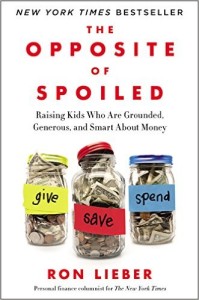Mom, mommy, mooom, mom, ma…Can I have this?
As moms, we all have that worry every.single.day whether we’re raising our kids proper enough to go off into the world and become well-rounded citizens. We watch what they eat, how they behave and what friends they keep—all while chauffeuring them to soccer and piano lessons. There’s one big lesson that we are all overlooking and not giving enough attention too: their relationship with money. Why is that? The medium most our world revolves around. Something most of these life lessons have an indirect relation to. My guess is because it’s a sensitive and ‘adult only’ conversation in the majority of households.
How can we teach the lessons of money to our children when we’re not even comfortable talking about it as adults? Another ‘Why is that?’ question. Maybe we can back up a bit and think about how we were taught as kids to value and think of money. When I was in elementary school, I remember making mile long lists of gifts I wanted Santa to bring me. I remember sizing up the present pile that had my name on it in comparison to how many my brother and sister had. Frequently having the ‘you don’t need that’ or ‘maybe later’ statement repeated to me in every toy store or tchotchke stand we walked by. But never understanding why. If we donated items or money to those in need, those items just disappeared out of our house and never talked about again. Not a clue where they went or for what reason.

It wasn’t until high school that my parents started talking about me getting a job to pay for the things I wanted. WHAT?!? A job?? I have friends to see! That notion was almost as shocking as my mother protesting that she was no longer going to do my laundry. After much whining and defiance (probably way more extreme than I recollect, right mom?) I did end up getting a job at 15. And from that day on, I’ve worked ever since; through high school and college too. Now I was paying for everything I wanted (not needed, although I didn’t know the difference at the time) and everywhere I wanted to go. It wasn’t until my early 20s when I started to realize how grateful I was to my parents for those important lessons. I knew how to budget, save, balance my checkbook, and giving to other people that didn’t involve elaborate gifts.
 It’s important to reflect on how you were raised to view money before you decide how you’re going to teach your kids about it. It’s the perfect topic to actually act on the ‘if I knew then, what I know now’ adage. In the Ron Leiber book The Opposite of Spoiled: Raising Kids who are Grounded, Generous and Smart about Money, he talks about the fear that parents have about the future earnings of their children. We all want to protect our children from falling into the lowest half of income tables; but in reality, only 20% of those children whose families earn enough to classify as middle class, ultimately end up there. [Side note: I highly recommend Leiber’s book to those who want to learn about the psychologies of money and children—whether it’s about your own childhood or future generations. And no, I don’t endorse or gain royalties for this.]
It’s important to reflect on how you were raised to view money before you decide how you’re going to teach your kids about it. It’s the perfect topic to actually act on the ‘if I knew then, what I know now’ adage. In the Ron Leiber book The Opposite of Spoiled: Raising Kids who are Grounded, Generous and Smart about Money, he talks about the fear that parents have about the future earnings of their children. We all want to protect our children from falling into the lowest half of income tables; but in reality, only 20% of those children whose families earn enough to classify as middle class, ultimately end up there. [Side note: I highly recommend Leiber’s book to those who want to learn about the psychologies of money and children—whether it’s about your own childhood or future generations. And no, I don’t endorse or gain royalties for this.]
No matter what age your kids are, it is never too late to open the conversation about the family’s finances and why you chose to spend the way you do. Studies show that children living in families (wealthy, poor, or paycheck to paycheck) where there is an open line of communication regarding how the family income is being spent, they are more likely to become more money savvy, and less likely to make financial mistakes in their adults lives. We all wash over those ‘Why’ questions kids love to ask. Instead of just saying ‘because’ when asked why they can’t have the new Lego set; explain to them about wants vs needs, or donating one of their rarely touched toys in exchange, or saving for said set. This gives kids the option to decide how bad they really want it and what they’re willing to do achieve the goal of opening that box they earned themselves.
Learn and change your habits with your kids, as a family. I recently instituted a new rule in my household about gift cards and started sharing the strategy with friends and family. Whenever you receive a gift card, you cannot spend it on yourself until you’ve used a minimum of 10% of the value on purchasing something for someone in need. In most cases, you will find that your child actually ends up spending more than the 10% on donations because they like the feeling of spending money–no matter whose hands the items end up in.
No matter what new activities you decide to integrate into your family teachings, focus first and foremost the comfort level and openness of such conversations. Embrace the ‘why?’ questioning as an opportunity to give that money lesson you wished you had as a child. Break the cycle of discussing family finances as taboo. Your kids will appreciate it down the line when they hear your voice in the back of their heads saying ‘save, save!’ instead of ‘because I said so’.
Need help coming up with fun and creative ways to discuss money with your kids, your family or even your friends? Contact me, I’m happy to help!




No comments